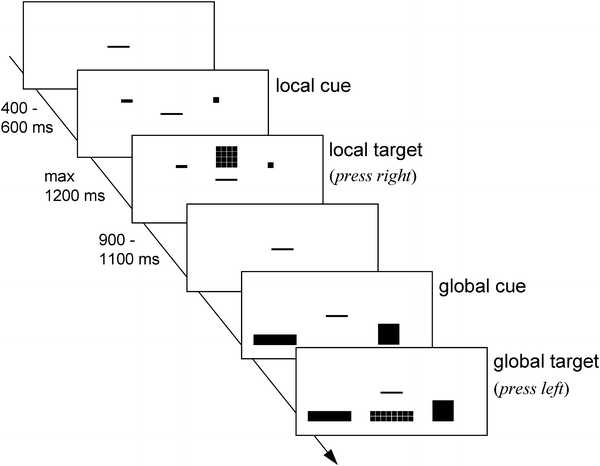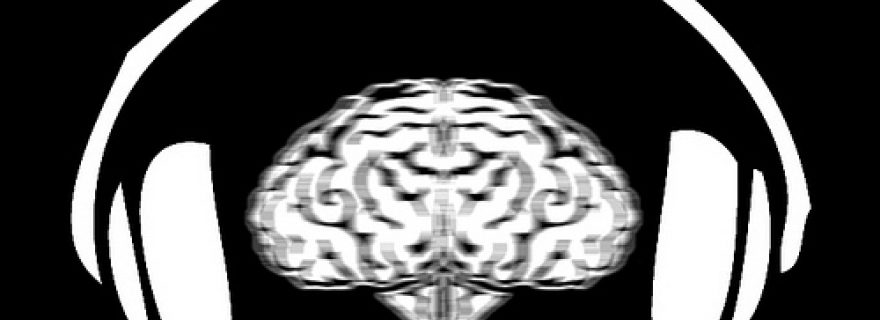Beat your way to better concentration
Some people swear listening to music while studying or working helps them focus better; others say music just serves as a distraction. What if there were a special type of music that would increase everyone’s productivity? Enter binaural beats.
Binaural beats are perceptual illusion resulting from the brain processing two sounds of slightly differing frequencies presented separately to each ear; 300 Hz to the left and 340 Hz to the right. The listener only perceives a single beating tone that is the difference of the two original sounds (40 Hz).
While the exact process underlying binaural beats in still uncertain, new research has shown that the beats can influence cognitive processing. Low-frequency tones have been associated with mental relaxation whereas high-frequency tones have resulted in attentional concentration. Our recently published Psychological Research article More attentional focusing through binaural beats: evidence from the global-local task has found support for the claim that high-frequency binaural beats can refine a participant’s attentional focus.
The study had 36 students listen to binaural beats and complete the global local task. Half the students were exposed to gamma-frequency (40 Hz) binaural beats, and the other half received a control condition with a constant frequency in both ears (340 Hz).
The global local task was used to test the mental costs of switching attention between different types of geometric shapes. The stimuli included larger (global) rectangles or squares consisted of smaller (local) rectangles or squares. Participants were presented with one of four possible stimuli: a rectangle made of smaller rectangles or squares, or a square consisting of smaller rectangles or squares. A cue (a solid rectangle and square) appeared half a millisecond before the stimulus at the center of the screen, between the two cue. The cue was either small or large, and indicated whether the participant should attend to the global or local level for the next stimulus.

We concluded that visual attention to the geometric figures was more focused when listening to the gamma frequency beats than in the control condition. Importantly, the beats did not suppress irrelevant information, rather they increased attention and focus to the task at hand.
Even if preliminary, this research means binaural beats could be an effective means to affect and enhance cognition. Without delving too far into the realm of science fiction, maybe in the near future we will be able to develop music with long-lasting positive effects on attention, concentration, and other desired cognitive conditions.


0 Comments